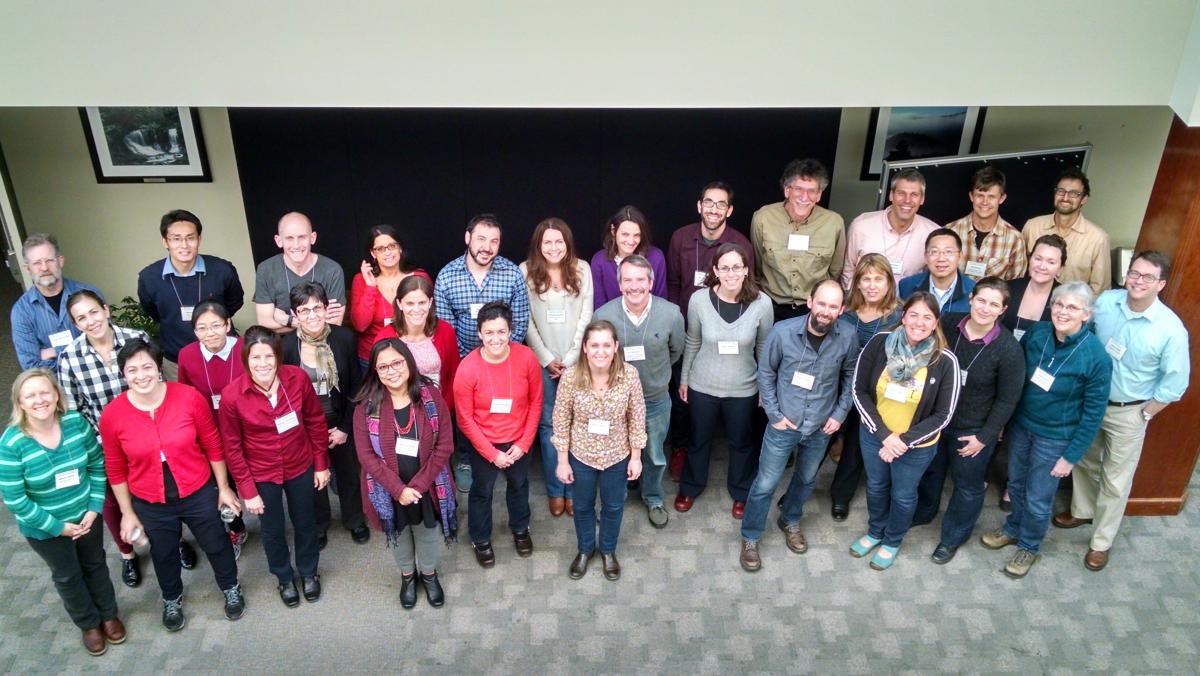- Home
- About
- Programs
- Carbon Science Planning
- Resources
- News & Opportunities
- Contact Us
Soil Carbon Vulnerability and Resilience Workshop completed
March 18, 2016
Boulder, CO
International Decade of Soils (IDOS) Workshop
UCAR Campus Greene Building
Boulder, CO
March 14-16, 2016
Sponsored by the Carbon Cycle Interagency Working Group (CCIWG)
Workshop Planning Committee: Melanie Mayes (ORNL), Kate Lajtha (Oregon State), Vanessa Bailey (PNNL), Rose Abramoff (LBNL), Margaret Torn (LBNL), Julie Jastrow (ANL), Gyami Shrestha (CCIWG/U.S. Carbon Cycle Science Program/UCAR), Nancy Cavallaro (USDA-NIFA), Dan Stover (DOE Office of Science)
Thirty six scientists and program managers from the U.S. carbon cycle research community recently participated in a CCIWG sponsored workshop on Soil Carbon Vulnerability and Resilience organized in recognition of the 2015 International Year of Soils and the 2015-2024 International Decade of Soils (See the PDF slides of International Union of Soil Science declaration). The goals of the workshop were to determine:
- The state of the science regarding predicting carbon stocks and fluxes;
- The priorities and rationale for inclusion of processes in models; and
- The rationale and plan for benchmarking models, and identification of data needs and availability.
The workshop was organized around 3 themes:
Vulnerability of soils to global change (Theme 1)
1. What is the state of the science regarding measuring and predicting carbon stocks and fluxes?
2. How do we expect soil carbon stocks and fluxes to respond to global change, including warming, N deposition, and land management? What is needed to better predict response to changes in the carbon cycle?
3. How do carbon stocks and fluxes vary across the landscape and what are the causes?
How well do models predict these differences?
4. What data is being used to test and benchmark the models?
Factors influencing soil carbon cycling (Theme 2)
1. What is the relative importance of biological, chemical, and physical factors in soil carbon cycling (in terms of stocks/fluxes)?
2. What is the relative importance of small-scale (e.g. organic-mineral associations, microbial physiology) vs large scale (e.g. erosion, land use change) effects on global C stocks and their response to global change?
3. Which processes are implicitly included in existing models and which are excluded?
4. Of processes excluded from models, what should be the priority for inclusion and why?
Of processes included in models, are there improvements needed?
5. What data is needed to test and benchmark the models?
Microbes in models (Theme 3)
1. What do we need to know about microbial ecology to represent microbial processes in models? What else is required?
2. How can we test whether including explicit microbes in models provides an improvement in model efficacy?
3. How can we collaborate to develop a benchmarking dataset for testing different structures of microbial models, and for identifying appropriate parameters?
An outcome of the workshop inludes a post-workshop expert survey to seek input on identification of soil carbon vulnerability with soil order. Results of the survey will be used to generate a conceptual framework for a soil taxonomy-based method to assess and predict soil vulnerability with respect to carbon loss and potential for carbon mitigation. Other outcomes of the workshop include the production of a conceptual framework for a synthesis of meaningful proxies for carbon cycle factors; and another conceptual framework for soil carbon cycle models' quantifiable pools. These and other pertinent perspectives and results of the workshop discussions and post-workshop outcomes will be published in a series of peer-reviewed publications authored by workshop participants. The workshop outcomes will also help to inform the 'Soils' topics in the upcoming second State of the Carbon Cycle Report (SOCCR-2). As a special report of the U.S. Sustained National Climate Assessment, SOCCR-2 will summarize contemporary understanding of carbon stocks, fluxes, and drivers in North America and will provide input into the next U.S. National Climate Assessment.
Further details and the agenda of the workshop can be accessed here.


